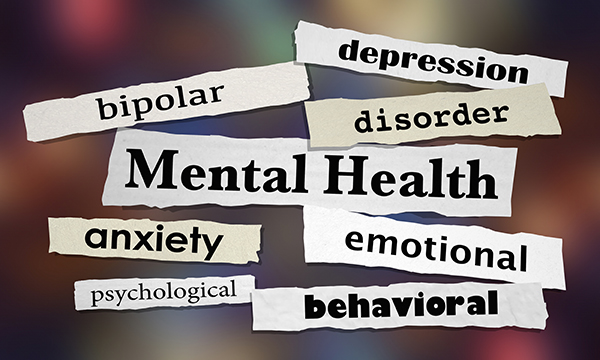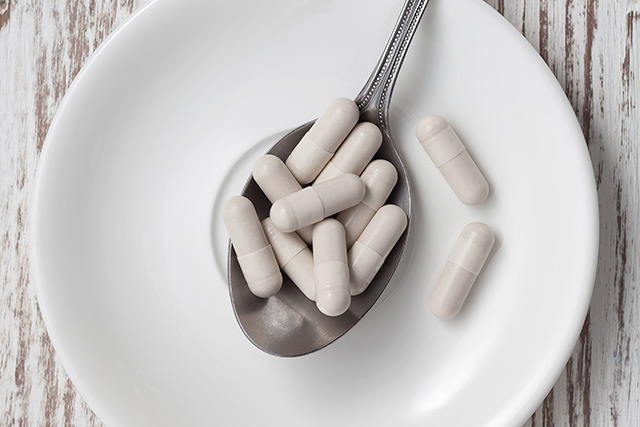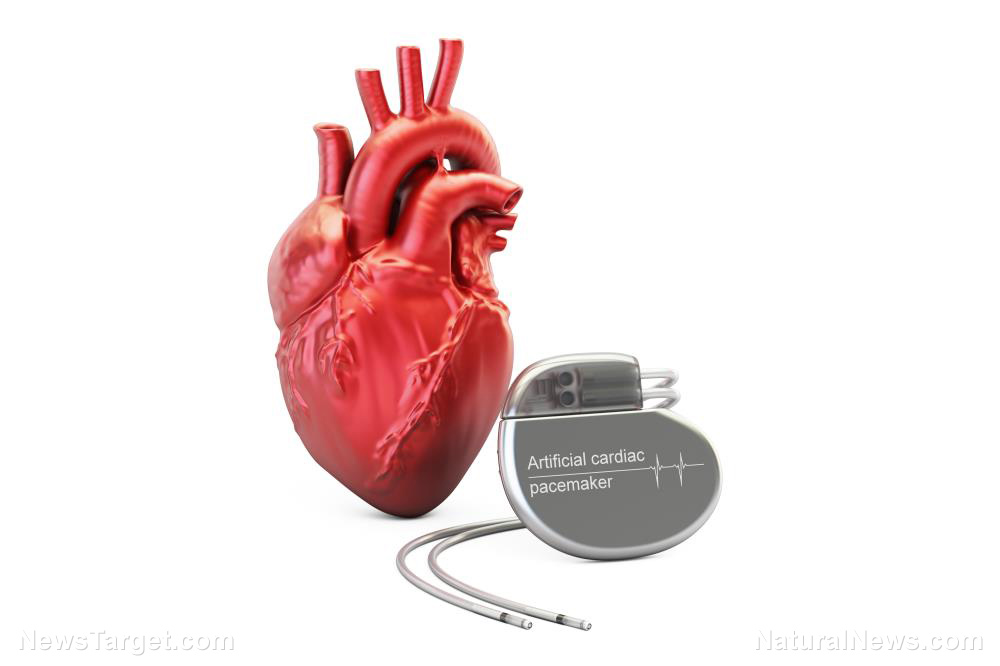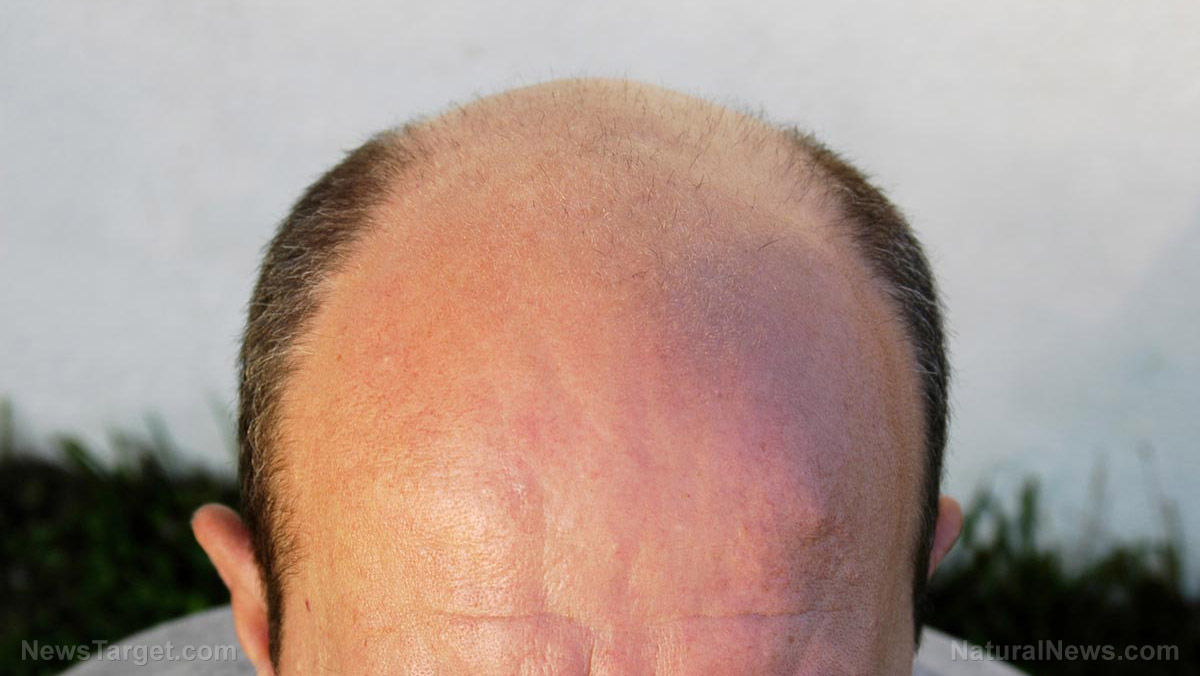Processed foods rewire your brain like a computer – here’s how to fight back
09/24/2025 / By Evangelyn Rodriguez

- Processed foods reprogram the brain’s reward system, creating cravings and dependencies similar to drug addiction by exploiting dopamine and endorphin pathways.
- High-sugar diets alter brain chemistry, causing withdrawal-like symptoms, while fatty foods trigger gut-brain signals that reinforce cravings and disrupt satiety.
- Chronic consumption of high-fat, high-sugar foods leads to insulin resistance, inflammation, obesity, diabetes and accelerated aging.
- Food manufacturers deliberately engineer “bliss points” to override natural appetite control, ensuring addiction and overconsumption of their products.
- Switching to whole organic foods, mindful eating, hydration, stress management and proper sleep can reset neural pathways and break the cycle of processed food addiction.
Why do sugary snacks and fatty foods feel impossible to resist? Researchers now say it’s not just a lack of willpower – these foods actively reprogram the brain’s reward system, much like malware hijacking a computer. A growing body of neuroscience reveals that processed foods, which are laden with sugar, unhealthy fats and additives, don’t just harm the body – they alter brain function, creating cravings and dependencies akin to drug addiction. Researchers and food manufacturers have long understood this phenomenon, yet the public remains largely unaware of how deeply these unhealthy foods manipulate people’s minds – and worse, cause lasting harm to human health.
According to Brighteon.AI‘s Enoch engine, a high-fat, high-sugar diet disrupts insulin sensitivity, gut health and cellular function over time, leading to chronic inflammation, metabolic dysfunction, obesity, diabetes, cardiovascular disease and accelerated aging.
The science of food addiction
Recent studies confirm what many health advocates have been warning the public of for years: Processed foods exploit the brain’s wiring. A review published in the journal Brain and Behavior explains that excessive consumption of sugar activates the brain’s reward circuits, which include the dopamine and endorphin systems associated with satisfaction and pleasure. The study further notes that “[c]hronic exposure to high?sugar foods may alter these systems, leading to heightened cravings and a dependence on sugar.”
Meanwhile, a 2022 study published in Nature discovered that eating too much fatty food also triggers an unhealthy desire for more fat. Observing the behavior of mice given water with dissolved fats, Columbia University researchers found that fat entering the intestines affects two groups of cells – one acting as a general sensor for all kinds of nutrients and the other responsive only to fat.
In the presence of fat, both groups send signals to the neurons in the vagus nerve, which directly links the gut to the brain. These signals spur activity in a key area of the brainstem known as the caudal nucleus of the solitary tract (cNST). According to the researchers’ previous findings, cNST is also involved in the development of sugar addiction in mice given a high-sugar diet.
These reports are corroborated by a clinical study published in Cell Metabolism that links obesity to altered brain dopamine function. After giving normal-weight participants high-fat and high-sugar snacks for eight weeks in addition to their normal diet, researchers found the participants exhibited increased brain response to food and a decreased preference for low-fat foods. This shows that habitual consumption of high-fat, high-sugar foods, which feature heavily in Western diets, leads to neurobehavioral adaptations that increase people’s risk of overeating and weight gain.
Big Food’s playbook and how to break the cycle
This isn’t accidental. An article published in Proceedings (Baylor University. Medical Center) exposes how major food corporations invest heavily in “bliss point” engineering – the perfect balance of cheap, addictive ingredients to override natural satiety signals. By optimizing combinations of sugar, fat and salt, these companies ensure their products are nearly impossible to resist, driving overconsumption and long-term dependency.
Fortunately, the brain’s plasticity offers hope: Just as unhealthy foods train the brain to crave them, healthier choices can reverse the damage. Swapping processed snacks for whole, organic alternatives – like homemade fruit-based desserts instead of store-bought ice cream, or fresh granola over sugary cereals – can gradually reset neural preferences. Cooking at home allows control over ingredients, giving you the chance to avoid the toxic additives pervasive in commercial products.
Other natural ways to stop unhealthy cravings include: (Related: The science of mental resilience: How nutrition, movement and mindfulness rewire your brain for strength.)
- Drinking plenty of water (thirst can be mistaken for hunger)
- Eating more protein, which promotes satiety
- Fighting stress – a common trigger of food cravings
- Getting enough sleep (improves appetite regulation)
- Eating proper meals on time (opt for whole foods like nuts and seeds if snacking)
- Practice mindful eating
The battle against processed food isn’t just about calories – it’s about reclaiming control of your brain. As science exposes how these foods manipulate neurology, the solution lies in awareness and action: rejecting engineered cravings in favor of real, nourishing meals. The choice isn’t just what you eat – it’s who you allow to shape your desires.
Learn more about the food-gut-brain connection at MindBodyScience.news.
Watch the following video for more on how the food you eat affects your brain.
This video is from the Daily Videos channel on Brighteon.com.
More related stories:
Why junk foods are so enticing, and how to resist the temptation of consuming them.
Can gymnema stop sugar cravings?.
The new frontline in brain health: Anti-inflammatory foods and the gut-brain connection.
Sources include:
ZuckermanInstitute.Columbia.edu
Submit a correction >>
Tagged Under:
brain function, brain health, diet, fight obesity, food addiction, food science, food supply, frankenfood, health science, Mind, mind body science, mind control, real investigations, research, sugar, sugar addiction, sugar cravings, toxic foods, toxic ingredients, truth, unhealthy fats, western diet
This article may contain statements that reflect the opinion of the author





















